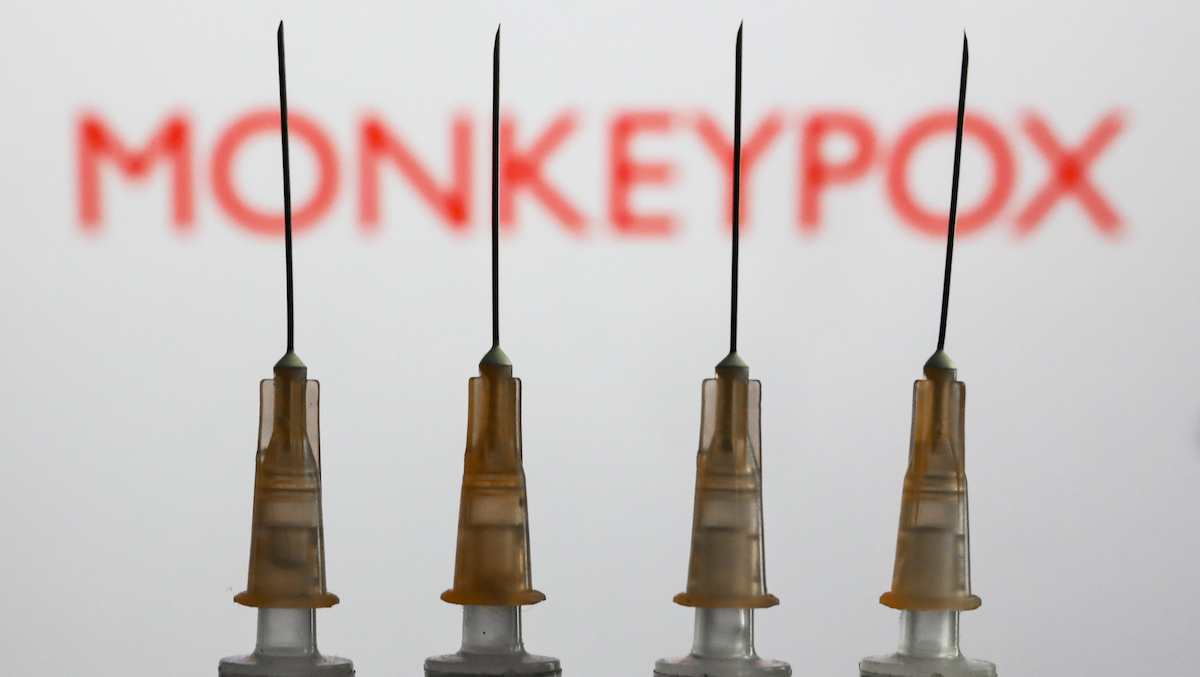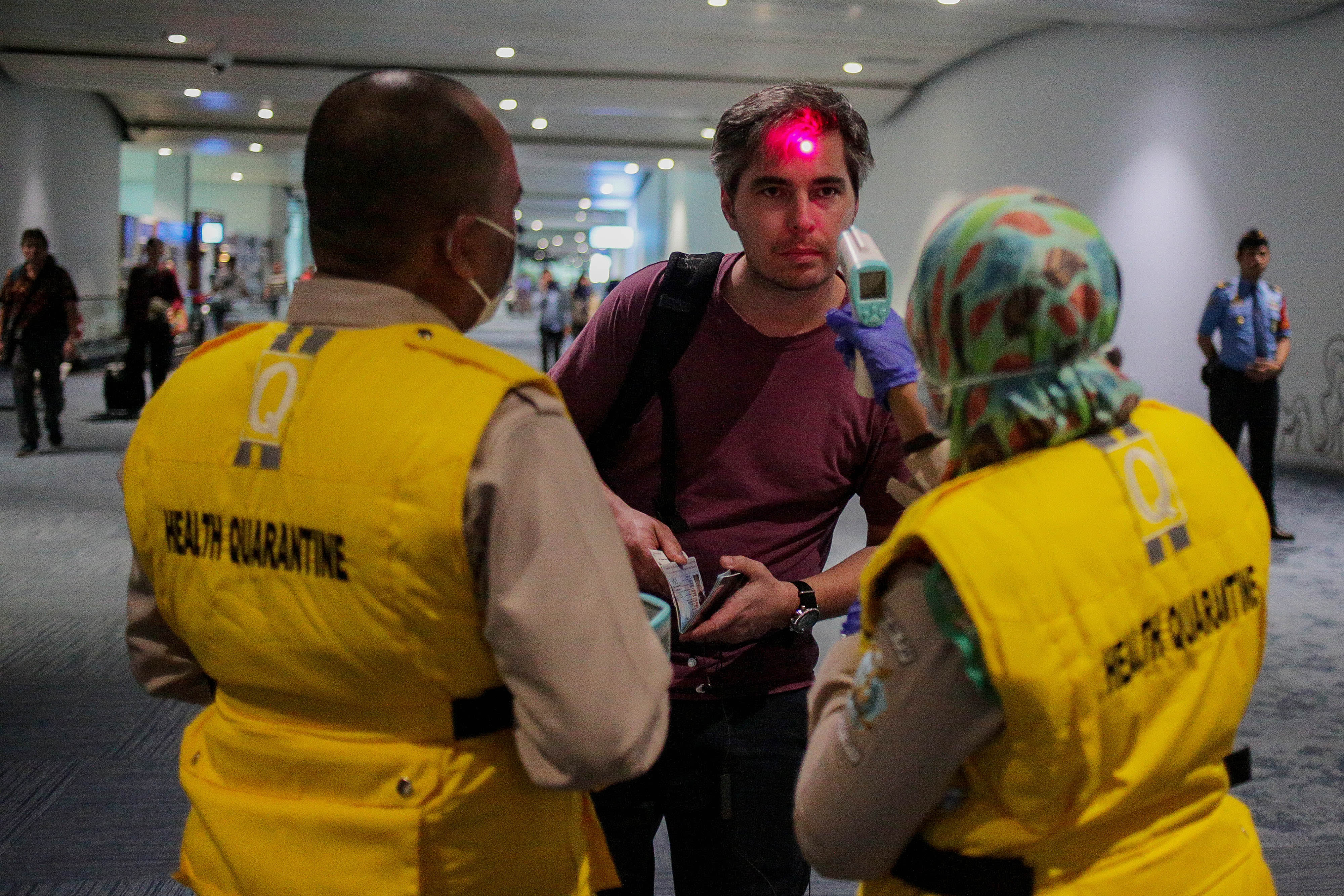There are now 13 confirmed cases of monkeypox in Connecticut as of Monday, according to the Connecticut Department of Public Health officials.
The state's first monkeypox case was reported around a week and a half ago.
A New Haven County man in his 40s marked the first case in Connecticut.
CT Department of Public Health Commissioner Manisha Juthani said last week that people in their 20s are more overrepresented. Of the 12 people diagnosed with monkeypox as of last week, she said she believes two have been hospitalized.
Get top local stories in Connecticut delivered to you every morning. Sign up for NBC Connecticut's News Headlines newsletter.
Dr. Marwan Haddad, medical director of the Center for Key Populations at Community Health Center, Inc., said monkeypox is more difficult to transmit and is not as transmissible as COVID.
He also said we need more vaccines.
“We have the preferred vaccine, which is the Jynneos vaccine. There is a limited supply currently and so it is being made available to the higher risk individuals,” he said.
But, he said, this is no reason to panic.
“So far all the infections we've seen have been mild. It is the strain of monkeypox that is milder that comes out of Western Africa, rather than the more severe monkeypox strains that we see from Central Africa,” Haddad said.
Here's what to know about monkeypox.
What Are The Symptoms of Monkeypox?
- The Centers for Disease Control and Prevention describes monkeypox as a rare disease caused by an infection with the monkeypox virus.
- Symptoms of monkeypox can include:
- Fever
- Headache
- Muscle aches and backache
- Swollen lymph nodes
- Chills
- Exhaustion
- A rash that can look like pimples or blisters that appear inside the mouth or on other parts of the body including the hands, feet, chest, etc.
How Is Monkeypox Transmitted?
- Direct contact with the infectious rash, scabs, or body fluids
- Respiratory secretions during prolonged, face-to-face contact, or during intimate physical contact, such as kissing, cuddling or sex
- Touching items (such as clothing or linens) that previously touched the infectious rash or body fluids
- Pregnant people can spread the virus to their fetus through the placenta
- It’s also possible for people to get monkeypox from infected animals, either by being scratched or bitten by the animal or by preparing or eating meat or using products from an infected animal.
- Monkeypox can spread from the time symptoms start until the rash has fully healed and a fresh layer of skin has formed. The illness typically lasts two to four weeks. People who do not have monkeypox symptoms cannot spread the virus to others. At this time, it is not known if monkeypox can spread through semen or vaginal fluids.
What Does Monkeypox Look Like?
- A rash that can look like pimples or blisters.
- It can be on the face, hands, feet, chest, genitals or anus.
- It can also be inside the mouth.
- The rash goes through different stages before healing completely.
- Sometimes, people get a rash first, followed by other symptoms. Others only experience a rash.
How Did Monkeypox Start?
Monkeypox is a rare disease caused by infection with the monkeypox virus.
The virus was discovered in 1958 when there were two outbreaks of a pox-like disease in colonies of monkeys kept for research, but the source of the disease is unknown, according to the CDC. However, they said, African rodents and non-human primates -- like monkeys -- might harbor the virus and infect people.
In 1970, the first human case of monkeypox was recorded.
Before the 2022 outbreak, nearly all monkeypox cases in people outside of Africa were linked to international travel to countries where the disease commonly occurs, or through imported animals, according to the CDC.
Is Monkeypox Dangerous or Fatal?
The CDC said infections with the strain of monkeypox virus identified in this outbreak—the West African strain—are rarely fatal.
More than 99% of people who get this form of the disease are likely to survive, but people with weakened immune systems, children under 8 years old people with a history of eczema, and people who are pregnant or breastfeeding might be more likely to get seriously ill or die, according to the CDC.
Symptoms can be extremely painful, and people might have permanent scarring from the rash.
Prevention of Monkeypox
The CDC recommends you take the following steps to prevent getting monkeypox:
- Avoid close, skin-to-skin contact with the monkeypox rash.
- Do not touch the rash or scabs of a person with monkeypox.
- Do not kiss, hug, cuddle or have sex with someone with monkeypox.
- Do not share eating utensils or cups.
- Do not handle or touch the bedding, towels, or clothing of a sick person.
- Wash your hands often with soap and water or use an alcohol-based hand sanitizer, especially after contact with sick people.
- In Central and West Africa, avoid contact with animals that can spread the monkeypox virus, usually rodents and primates. Also, avoid sick or dead animals, as well as bedding or other materials they have touched.
What To Do If You Have Monkeypox Symptoms
- See a healthcare provider if you have a new or unexplained rash or other monkeypox symptoms.
- Remind the healthcare provider that monkeypox is circulating.
- Avoid close contact, including intimate physical contact, with others until a healthcare provider examines you.
- Avoid close contact with pets or other animals until a healthcare provider examines you.
- If you’re waiting for test results, follow the same precautions.
- If your test is positive, stay isolated until your rash has healed, all scabs have fallen off, and a fresh layer of intact skin has formed.
Testing for Monkeypox
The state public health lab has been doing testing for monkeypox, Monday through Friday.
Diagnostic testing is now available from commercial laboratories, including LabCorp, Mayo Clinic, and Quest, according to the state Department of Public Health, and providers can order testing from these laboratories as they would order other diagnostic tests.
Monkeypox Vaccine
They said there is currently a limited supply of JYNNEOS in the United States, but more is expected in the coming weeks and months.
The CDC said there is an ample supply of ACAM2000, but people who have some health conditions, including a weakened immune system, skin conditions like atopic dermatitis/eczema, or are pregnant, should not use it. The health agency also said there is no data yet on the effectiveness of these vaccines in the current outbreak.
Sign up for our Breaking newsletter to get the most urgent news stories in your inbox.




